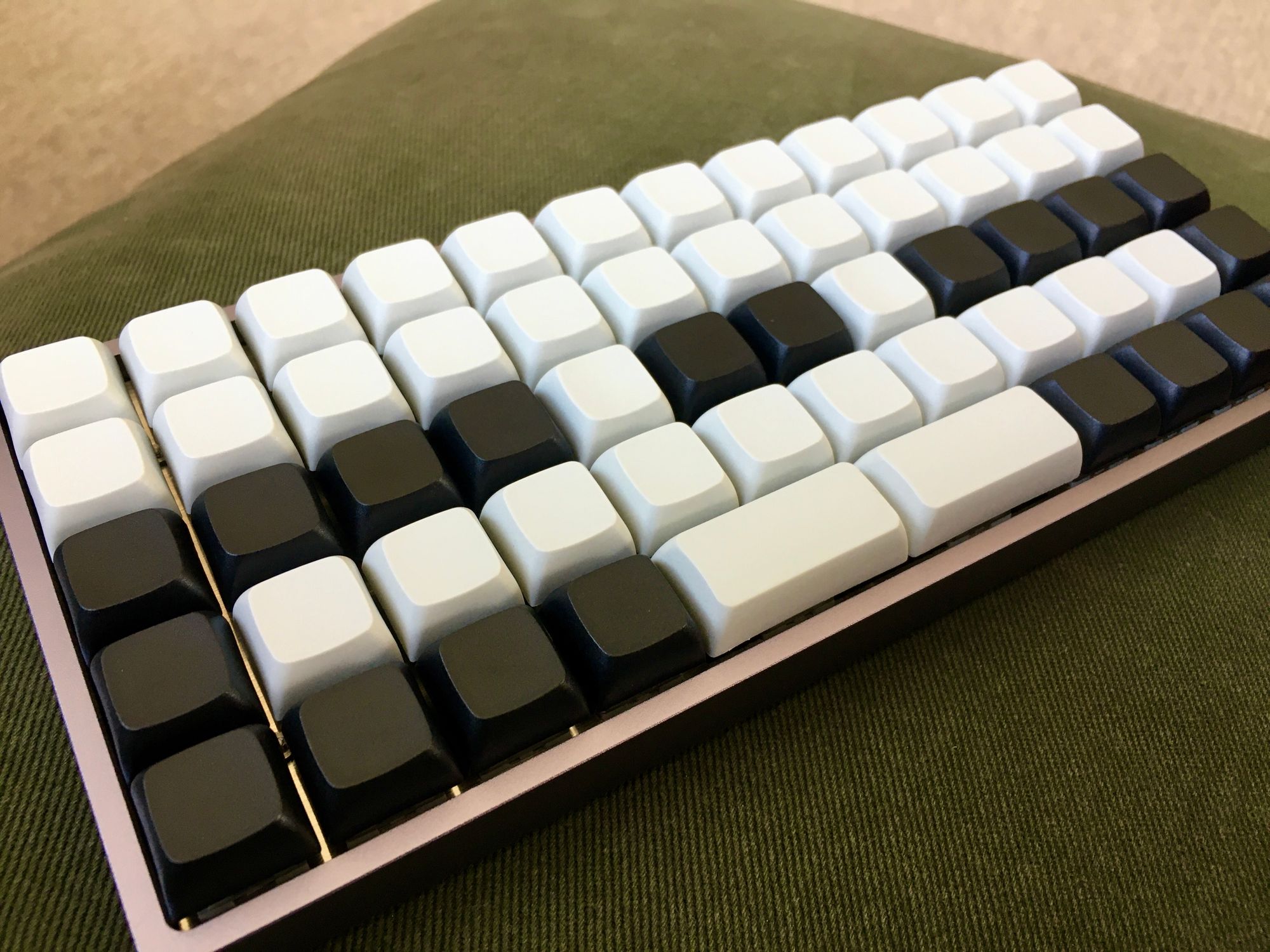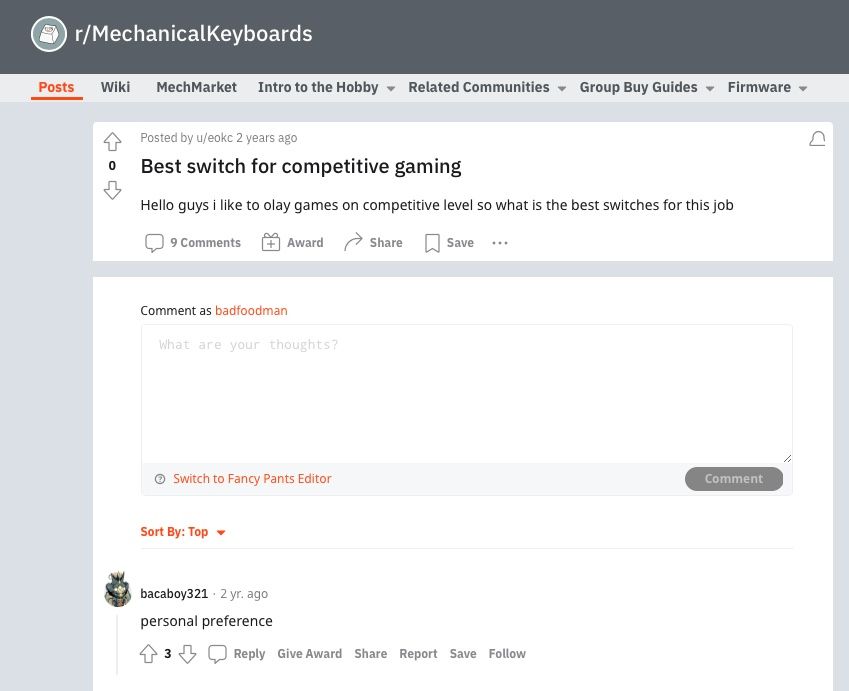I've written a few posts now on things that could be considered "hobbyist" interests. You might be able to tell that I spend a ton of time sitting at my desk because I can't stop writing about keyboards and headphones. At some point I'll probably talk about other paraphernalia that appears on desks or how I organize my desk, because I've thought a lot about these kinds of things. When you spend 14 hours every day using a tool, you want that tool to be satisfying.

At least, that's how things started. I got my first set of nice headphones because I loved listening to music while I worked, but I didn't want to bother anyone late at night. I got my first mechanical keyboard because I physically couldn't type and was desperately trying to find something that would let me work at a computer all day. I got into coffee and tea because my mom drinks tea and my dad drinks coffee, so they were extremely social beverages for me and I wanted to know more about
That's not what these things are for me now.
Curiosity
It starts with genuine questions. You want headphones, and you know there's a budget. You know you know nothing, so you go to the internet:
What are the best headphones under $100?
There are legitimate review sites out there with the money and search engine optimization to reach the front page, but most "review" pages online are actually just a glorified ad. Sometimes, that's good enough. Other times, you realize you have to go a level deeper and find the hobbyist hangouts online.
These days there are tons of them to pick from. There's Reddit, usually a Discord server or two, and an old school forum like Super Audio Best Friends to go to. Back in 2010, I went to Headphones.com for most of my information because they had measurements and reviews (rare at the time), which felt like the best combination of objectivity and subjectivity.
Hostility
The problem that you find is that there is no "best" product and the hobbyists will let you know. Aggressively.

The problem these groups have is that they're correct: most things come down to personal preference. I personally don't like that much bass in my audio, but many people just want more no matter how much you give them. I don't like clicky switches, but I do like tactile switches. I prefer a single big screen on my desk to multiple screens.
But how is a beginner to know what they like. By definition, a beginners has no knowledge. You can't tell a beginner that a headphones has amazing imaging or resolution and expect them to understand what that means. You could tell them that tactile switches are great for typing but not gaming, and they'd believe you but wouldn't know that the difference is not really that big (most of the time). Most people that I've seen give up almost immediately because of the barrier to entry. They don't want to spend $300 on 3 headphones to decide what characteristics they like in their music, they want to spend $100 on 1 headphone.
Resolution
So what's a beginner to do? Some are like me and decide to find out for themselves. They dive in to some cheaper corner of the hobby to figure out what the hype is about. Some other people dive in deep (it's not uncommon see people who have spent $1500+ on their "first" headphone desk setup or $400 on their first "real" knife), sometimes they spend their whole time researching and learning, and sometimes they throw up their hands is disgust.
Those who give up never send their feedback back to the community, while the other two groups only validate the opinions the group already had. They become hobbyists, gatekeeping the entrance to the hobby with either the need for more money or more knowledge. To the first group, the hobby is partially a sign of status at first; look how much more I have than you. The the second, it's a sign of superiority; look how much more I know than you. The cycle starts over.
Welcoming
This post was a roundabout way of saying: we need to be better, across every hobby.
As someone in growing hobbies, it's important to the growth of the hobby (and therefore important to our happiness) that we foster a constructive and welcoming environment for people. Specifically, for people who have never encountered the hobby before.
I feel like maybe I've done a poor job making my reviews accessible to someone who doesn't already have a nonstandard keyboard, or has spent some time playing around with audio equipment. On one hand, I don't feel bad; my target isn't those just getting started. On the other, I do! While not everything is easily approachable, my Etymotic ER3XRs are definitely within range of someone trying to get a good pair of (reasonably) affordable in-ear monitors.

That review, while reasonable, was not particularly valuable to a newcomer. Aside from mentioning the ER2 line, I didn't mention anything else about the competition for that earphone. That's because, while I have quite a bit more knowledge about the space than a beginner, I don't actually have that much experience with different types of audio equipment.
I have a strong preference for a more neutral, low-bass audio experience, and I was lucky to find that on my first purchase. I was similarly lucky with my first fancy keyboard. I couldn't tell you what hobby I didn't fall into because my first experience looking for "the best beginner X" turned up something that was exactly the opposite of my preferences. I may not have known that it could be different and given up thinking I didn't like the activity, or even known that there were different experiences available in the space.
We need to welcome those who can't vocalize what they're feeling in the same way experienced hobbyists can. James Hoffman recently brought in Tom Scott to walk him through coffee, and I thought it was an excellent way to introduce a newcomer to a hobby. While we can't ship a beginner our knife collection or a set of switches every time they ask for the best, we can provide some helpful ways to navigate the initial barriers.
What words do they need to know? What experiences outside of the hobby can we relate them to, even if the comparison is lacking in some way? What questions can we ask to get an idea of their preferences before they even know what they might be? Once we have an idea of what they might like, how could we get them to test that as quickly and easily as possible?
This is, admittedly, a lot of work. There are thousands of people coming to the keyboard and headphone subreddits every year asking for the best, and it's understandable that those in the community don't want to engage every one. But we can still put in some effort, at least something more than just "personal preference" or a blind recommendation for product X.
At some point, I'll make some reviews targeting beginners more than active hobbyists. Right now, I'm struggling to find the time and energy to think about how to phrase things for people already in the know, so working out good metaphors or comparisons is out of my capacity for the moment. Until then, prepare for jargon.

